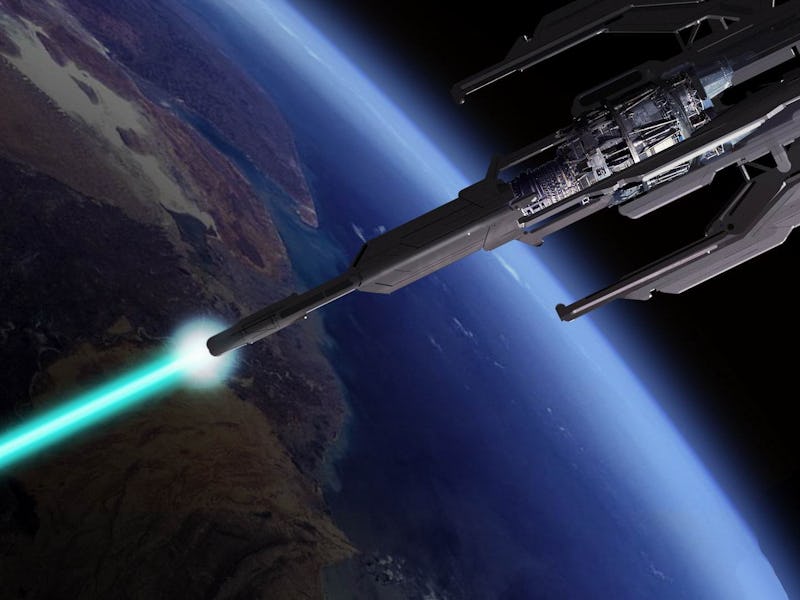After weeks of radio silence, President-elect Donald Trump has finally announced who will presumably be taking the reins over NASA for the transition team: Christopher Shank, a former top aide and communications official for the space agency. Shank’s appointment seems to reinforce Trump and Vice President-elect Mike Pence’s calls for stepping up military assets in space and push for greater cross-collaboration between NASA and U.S. intelligence agencies.
Why is that? Shank, a former member of the U.S. Air Force, has experience helping the Pentagon work on space programs. He had a stint as a special assistant to former NASA Administrator Mike Griffin. In addition, since 2011, he’s served as deputy chief of staff for Representative Lamar Smith — the chairman of the House Science Committee for the last three years, and for which Shank has served as a staffer.
Overall, Shank is an establishment figure who has spent plenty of time navigating through the federal government’s civilian and military sectors. He’ll likely act as an effective bridge between the two as the incoming Trump administration looks to foster interdepartmental collaboration.
It’s not just Shank’s appointment that speaks to this notion. Mark Albrecht, space policy advisor under former president George H.W. Bush, has been assigned to work with the Department of Defense for the transition team. Albrecht was long pegged by industry insiders to be a shoe-in for the NASA transition team, so his new role at the Pentagon is a bit of a surprise. But Albrecht’s appointment may actually be a way for the Trump administration to increase the defense department’s influence over U.S. space policy.
Trump has been vocal about his desire to resurrect the currently-defunct National Space Council, which would bring together the heads of various federal agencies together in one body to discuss and direct U.S. policy holistically — not just with regards to NASA. And the head of this council would be Pence, who is reportedly enthusiastic about melding NASA’s work with the military and intelligence community.
Why would Trump and his advisors push for more cooperation between NASA and the military? With China’s own space program pulling together a rapid string of successes, and with the advent of space mining poised to accelerate the the militarization of space, there is a legitimate case to make for why the executive office should start planning now for how it will use space as another platform for strengthening national security. International law only prohibits putting weapons of mass destruction into orbit — it doesn’t prevent conventional weaponry from being launched.
Of course, aggressive actions from the U.S. would almost certainly just persuade Russia, China, and other countries to begin making their own plans to beef up their military assets in space. Trump, if he’s not careful — and so far, there’s no reason to expect anything less than recklessness from our new president — could create a new space race that plunges the world into new existential lows.
